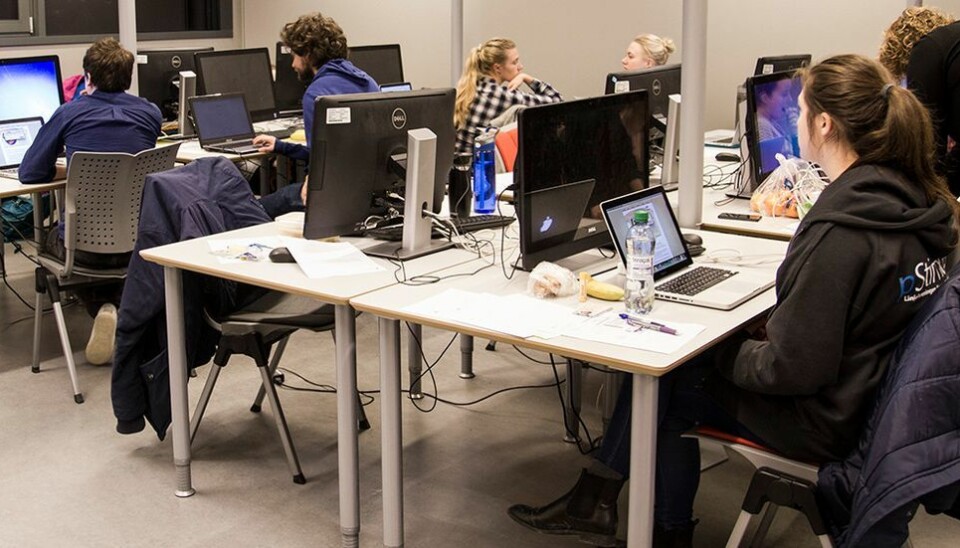It is puzzling for me why we are again discussing 4-hour campus-based exams, how they potentially can or cannot be done before Christmas and that there are plans for over 1000 of such exams. What have we learned from the spring semester and have we missed an opportunity to discuss assessment practices in more substantial terms?
Questions about assessment practices have actually nothing to do with COVID-19, the urgency of rethinking assessment has only been amplified by the current situation. With Covid-19, I would argue, we as academics have an even larger responsibility to reconsider our choices and design assessments that are meaningful and acknowledge students as partners.
Assessment practices vary between different fields, but instead of claiming that things cannot be done differently, this diversity could actually open up the possibility to learn from each other. However, if we only ask, “how can we avoid cheating and have full control over the entire exam”, it is difficult to start those discussions. If we instead ask ourselves why students might consider cheating and what a 4-hour campus-based exam can actually tell us, we might be able to discuss assessment practices in broader terms.
Why might students consider cheating?
First of all, I want to point out that I think that it is deeply problematic if we start our work from the presumption that students will cheat just because it might be possible. Students as a group are not, by nature, cheaters or plagiarists.
However, there might be some students that consider cheating maybe to pass the course or getting a high grade. They might have the desire and/or feel a perceived need to perform on an exam and see cheating as a last option.
If this is the case, we should think about where this perceived need stems from, rather than doing everything to minimise the possibility to cheat. This leads us to the question what students think the role of the university is and what they want to get out of their education. If the value that a university provides is perceived by the students to be merely a final diploma and stamp, I would argue that we have a much bigger problem than that a small number of students might consider cheating.
I have hope however that most students are actually at university, because they want to learn and become part of a disciplinary community. Maybe they are not interested in every single course and that might be because we do not illustrate enough how things are connected. But in general terms, I believe that students at university are interested in the field that they study. Some might call me naive, but the students that I have worked with wanted to learn - they want to get more from NTNU than a diploma.
What can 4-hour campus-based exams tell us?
The second question is focused on the assessment format. So even if one thinks that I am naive in trusting students, we would need to ask what 4-hour campus-based exams can actually tell us, as well as what other assessment options we have and how we could use resources differently. Fortunately, there is substantial research on assessment and assessment practices, for some starting points see list at the end. It is this research that needs to form the foundation of our practices.
First of all, we need to be clear about that a 4-hour campus-based exam will be an indicator for how a student can perform in a stressful situation that for most disciplines do not represent any typical work situation (Schwab, Moseley & Dustin, 2018). There are simply very few situations in work life where you sit alone for four hours without access to resources to work on something.
This means also that we need to consider that students react differently to this kind of stress and even more so in a situation like we are in at the moment. So, the exam result will always partially reflect how capable an individual student is to cope with and perform in a stressful situation. With this in mind, it is important to realise that 4-hour campus-based exams are not and cannot be a gold standard of objective assessment. In addition, it is questionable if objective assessment is possible or desirable in the first place. I will not go into this here, but Kohn (2000) discusses the complexity in this question to a greater detail.
While 4-hour campus-based exams potentially can tell us something about what students have learned, there are many other factors that will influence students’ performances.
This also leads to the question of how important this control function of exams is and how it influences learning processes. Problems with exams and grades include that they tend to dimmish students’ interest in what they are learning, shift the focus towards checking boxes and suppress the desire to wonder and being curious (Kohn, 2011). Therefore, we need to have discussions about how exams and grades shape our learning environments.
The idea here is not to lower standards or demanding less from students. On the contrary, we can and should demand a lot from students. I would rather argue that by moving away from typical final exams, we will be able to co-create places for learning together with students that are meaningful, relevant, challenging and conducive to learning (Stommel, 2020).
Where can we go from here?
We use tremendous amounts of resources to pseudo control if students have learned - which I argue is difficult - what we have taught them. By reconsidering how we can use these resources to actually support students in their learning process, we will likely solve potential problems of cheating and be able to create a learning environment that celebrates learning over testing.
Rather than asking how can we have exams without the risk of cheating and without the risk of Covid-19 infections, we should ask: Who is the assessment for? How can assessment better support student learning? How can we engage students more fully in conversations about their own education, bringing them into the design of courses, curricula, and assessment?
We all teach in different fields and have our own pedagogical positions, which means that we need to find our own answers, but it is important to ask questions that go beyond replicating and manifesting tradition. We need to stop thinking only about how to manage the next exam period and have a more substantial discussion about assessment practices in general.
Finally, I would argue that we need to care about students and do not suspect them for cheating. The current pandemic is a situation that nobody wishes to be in, and I argue that we as academics have both the responsibility and power to make choices that will shape how learning and assessment practices unfold in this particular situation and in the future.
Starting points from the literature on assessment:
Black, P., & Wiliam, D. (2009). Developing the theory of formative assessment. Educational Assessment, Evaluation and Accountability, 21(1), 5–31. https://doi.org/10.1007/s11092-008-9068-5
Boud, D. (2000). Sustainable Assessment: Rethinking assessment for the learning society. Studies in Continuing Education, 22(2), 151–167. https://doi.org/10.1080/713695728
Clark, I. (2012). Formative Assessment: Assessment Is for Self-regulated Learning. Educational Psychology Review, 24(2), 205–249. https://doi.org/10.1007/s10648-011-9191-6
Dochy, F., Segers, M., & Sluijsmans, D. (1999). The use of self-, peer and co-assessment in higher education: A review. Studies in Higher Education, 24(3), 331–350. https://doi.org/10.1080/03075079912331379935
Harland, T., & Wald, N. (2020). The assessment arms race and the evolution of a university’s assessment practices. Assessment and Evaluation in Higher Education, 0(0), 1–13. https://doi.org/10.1080/02602938.2020.1745753
Keri Schwab, Bryan Moseley & Daniel Dustin (2018) Grading Grades as a Measure of Student Learning, SCHOLE: A Journal of Leisure Studies and Recreation Education, 33:2, 87-95, https://doi.org/ 10.1080/1937156X.2018.1513276
Kohn, A. (2000). The case against standardized testing: raising the scores, ruining the schools. Quebec, Canada: Pearson Education.
Kohn, A. (2011). The case against grades. Educational Leadership, 69(3), 28-33.
Robotham, D., & Julian, C. (2006). Stress and the higher education student: a critical review of the literature. Journal of Further and Higher Education, 30(2), 107–117. https://doi.org/10.1080/03098770600617513
Sadler, D. R. (1989). Formative assessment and the design of instructional systems. Instructional Science, 18(2), 119–144. https://doi.org/10.1007/BF00117714
Shepard, L. A. (2000). The Role of Assessment in a Learning Culture. Educational Researcher, 29(7), 4–14.
Stommel, J. (2020). How to Ungrade. https://www.jessestommel.com/how-to-ungrade/
































































